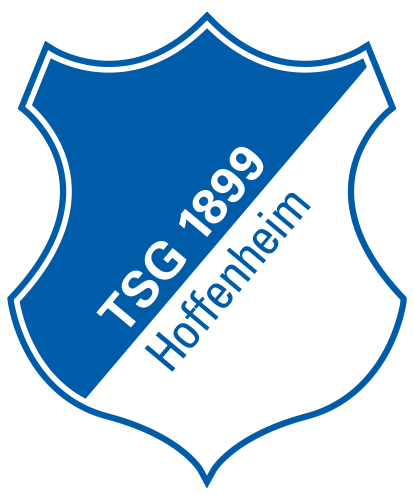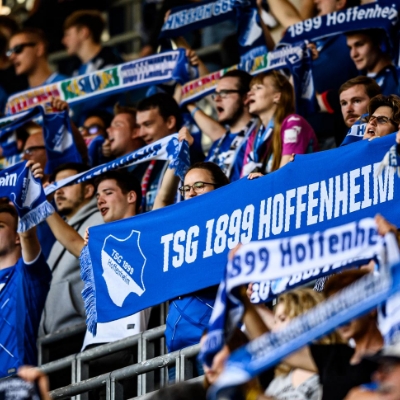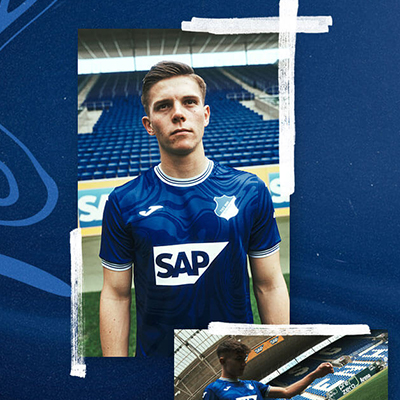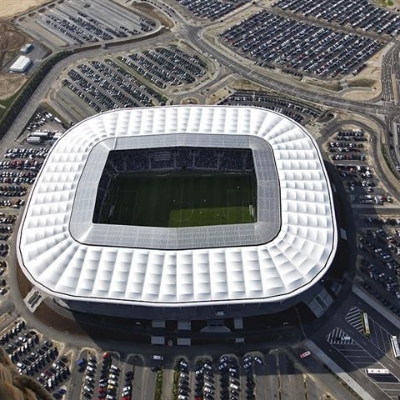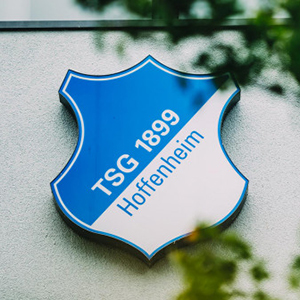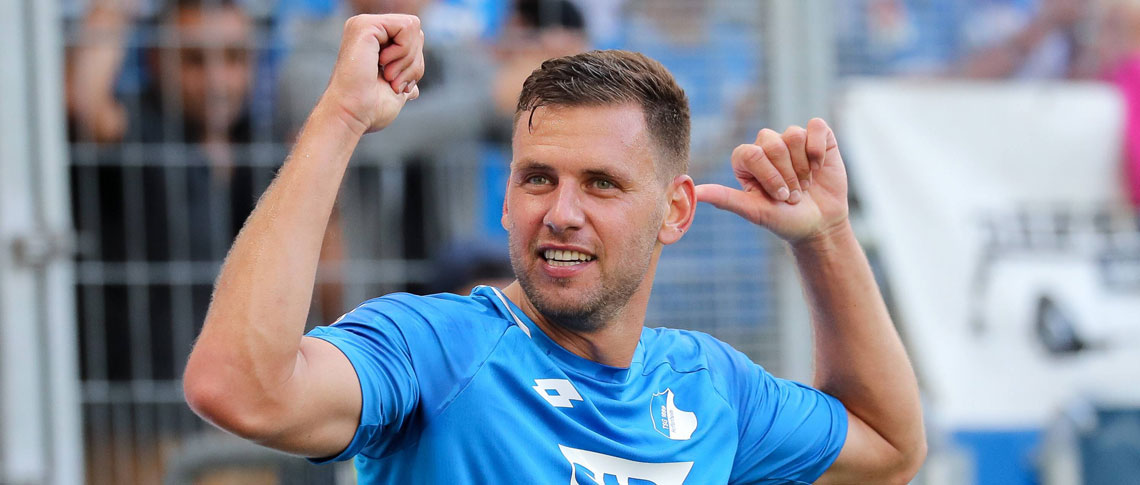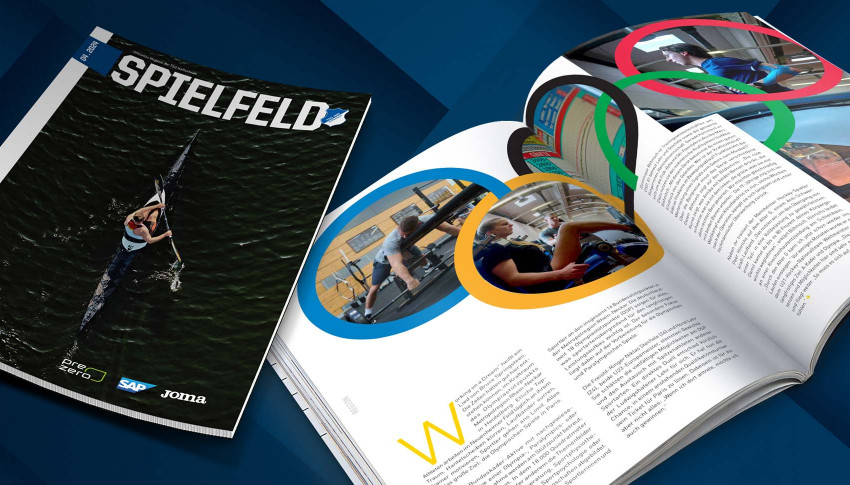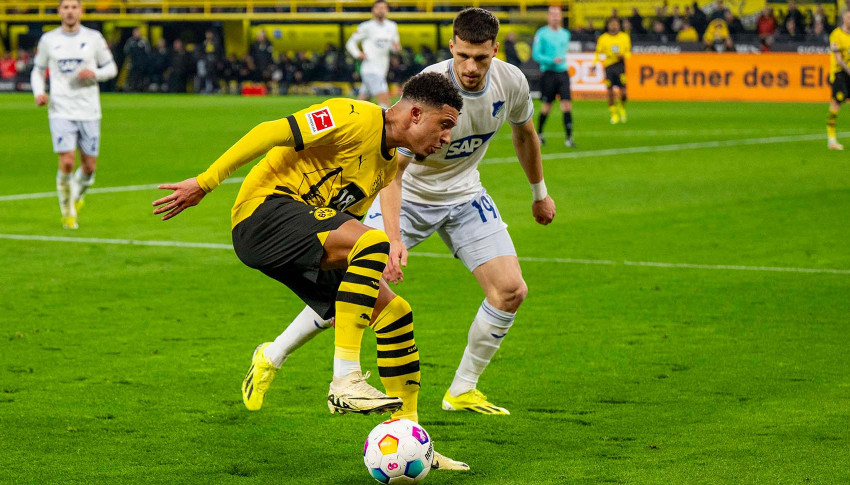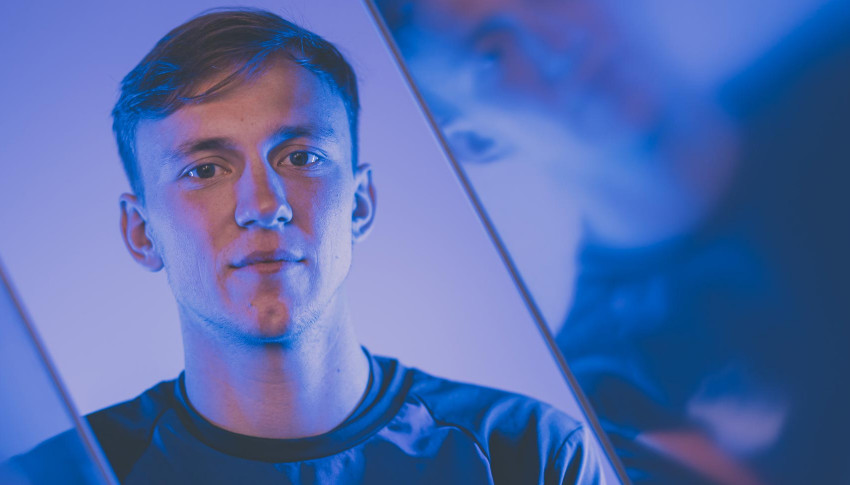Szalai: "You always have to fight your way out of trouble"
Ádám, your popularity among TSG fans grew astronomically last season. Recently, fans have even been getting "Ádám Szalai, football god" printed on their shirts. You have also had difficult times here. How are you experiencing this rise in popularity?
"It's especially nice for that reason, when you consider that not everything was so simple right at the beginning and that I had a very difficult time. Looking back across the last two years, it has been an unbelievably positive time since Julian's arrival and my being able to work together with him, even though I haven't always played. He sets targets and it's a lot of fun achieving what we have given ourselves to do."
You have experienced a lot during your career. Was the match against BVB on matchday 34 last season a highlight, when you got the all-important goal for 2-1?
"That goal was certainly a highlight too because it was a very important one. We were a little desperate after they had equalised, but then we came back strongly. That was an important moment. But even without my goal, the game would have remained lodged in my memory. It was something special as both teams wanted to qualify for the Champions League and the game was characterised by enormous tension. It was just as though we were playing a final and was an incredible experience. You play football to experience exactly those things. You saw how the supporters and spectators contributed to getting a result and what emotions that stirred. It was something unforgettable."
What was the feeling like once the whistle for full-time had been blown?
"I was so, so happy that we had won and that we had qualified for the Champions League. The atmosphere was unique. There were lots of people there I could celebrate with. The jubilation, the relief, it was simply incredible."
You score regularly, and are doing so again this campaign. It is noticeable that you have a really good understanding with your Heidelberg neighbour Nico Schulz, with whom you also went on holiday this summer. Does such a friendship help on the pitch?
"Of course. Nico and I are very good friends, and have been since before his arrival here. For that reason, it's really nice that we're neighbours. We spend a lot of time together. On the pitch, it would also be nice if he could set up a few more goals than just the one so far (laughs)."
"Getting relegated with Hanover was a low-point"
There was a time for you when there was not much to laugh about. In the 2015/16 season, you were sent out on loan to Hanover and were relegated with 96. Now you are captain of the Hungarian national team and are playing with TSG in the UEFA Champions League. Did you think it was possible back then that your career would pick up such momentum again?
"Getting relegated with Hanover was definitely a low-point in my career. I wasn't wanted by the national team either at that time, the 2016 European Championships changed everything suddenly. But I continued to believe in further successes, even if that sounds a little crazy. But I knew what I'm capable of and also why I wasn't performing. At some point you fall into a spiral where everything goes wrong and you have to fight your way back out of it. I think that's not only true for football but in everyday life as well. Whatever you do, there are always hard times. But the most important thing is how you react to those difficult moments and what you make of them. During the good times, everybody can enjoy life in a relaxed manner, but not everybody can deal with the hard times. That's when you need strength of will and discipline."
Do these experiences help you when you are on the bench for two or three matches or when things are not going so well?
"If you've been through different phases, then you are of course more resilient and can handle the difficult times better. I've learned from the past and know how it is what you have to do."
You have experienced much in both your career and your life. At the age of 16, you left Hungary alone for VfB Stuttgart in Germany. When you look back at this time, how difficult was it, or were you full of hope and expectation that you would go on to have a professional career?
"The time at the beginning was the most difficult in my whole life because I was alone and couldn't speak a word of German as I moved into the boarding school. The first half year went badly, but there came a point at which things began to turn around in my favour when I played more matches and won the German Championship with the Stuttgart A-Youth. If I decide to do something, then I give my all until I have achieved it. That is not only true for football. I have a will of iron. As a result, I'm very happy that I came out the other side of that difficult first phase in Germany."
You were rewarded early with an offer from Real Madrid. How was your time at what is arguably the best club in the world?
"I was 18 years old and had a couple of problems in Stuttgart because their plans for me didn't correspond with how I had envisioned things. So I transferred to Real Madrid's second team and played there for two years. I trained with the first team for the last half a year, but it wasn't enough to get any game time. Nonetheless, it was one of the happiest times in my life. The second year especially went really well. I was the most successful player in the second team which is why I got to train with the first team. At that time, it was a team full to the brim with global superstars and I hoped to make it there, but it was clear to me that it would be extremely hard to get into the first team and that it wasn't entirely realistic. However, the time was important for ma and it was a good springboard back into the Bundesliga, as I transferred, of course, to Mainz."
"Football is a team sport"
Either with the "Bruchweg Boys", Lewis Holtby und André Schürrle at Mainz, or later at Schalke 04 and now at TSG – even though you are a typical centre-forward, you always maintain that your goals are less important than the team's success.
"That's how I was educated with regard to football. It's not the case that I shouldn't score goals or want to score them, but it is a team sport. I understand if others see that differently. But I've always been able to perform well and always got my rewards when I did what a tactically astute manager asked me to do. It was never the case that he said to me before a match, 'Ádám, it's your job to score two goals'. I was always the striker that was given three or four different jobs to do. When I did those jobs, then sooner or later I was rewarded with goals too. And I love being on the pitch. If I was only concerned with getting goals, then I could also have become a tennis player or a swimmer. You swim against the clock or you're simply alone and have to win your competition. But we're playing a team sport and these days successful teams are characterised by every single player knowing what he has to do, what he must do as a priority, in order to have success as a collective. TSG is a perfect example of that."
Despite your convincing goal tally, you are a player that works very hard and who does not simply lurk up front. Do you have any role models in that respect?
"If I had to name someone off the top of my head, it would be Zlatan Ibrahimovic, who has always been an inspiration for me. I don't mean his behaviour off the pitch, but his way of playing. I found his performances as a centre-forward impressive from a young age already."
Your grandfather played first division football in Hungary. Your father was a water polo player, an extremely popular sport in Hungary. Did you inherit certain sporting values that are still important to you to this day?
"Definitely. Honesty is the most important thing to me. That's not always easy in the world of football. Strength of will is another one. My entire career has been based on that: will I achieve something or not? I had to work for everything in any case. When you arrive in Germany as a foreigner at the age of 16, then it depends on your personality if you're going to make it or not. And I managed to do so. Since that point, Germany has become my second home, I feel happy here and am grateful to the country, and to TSG as well, of course."
An edition of SPIELFELD is published once a month. It's full of important stuff – what's happening at TSG, around the club and in the region. If you don't want to miss out and want to stay up to date, then get our monthly magazine delivered to your home – and the first six months are free of charge. Sign up here.


